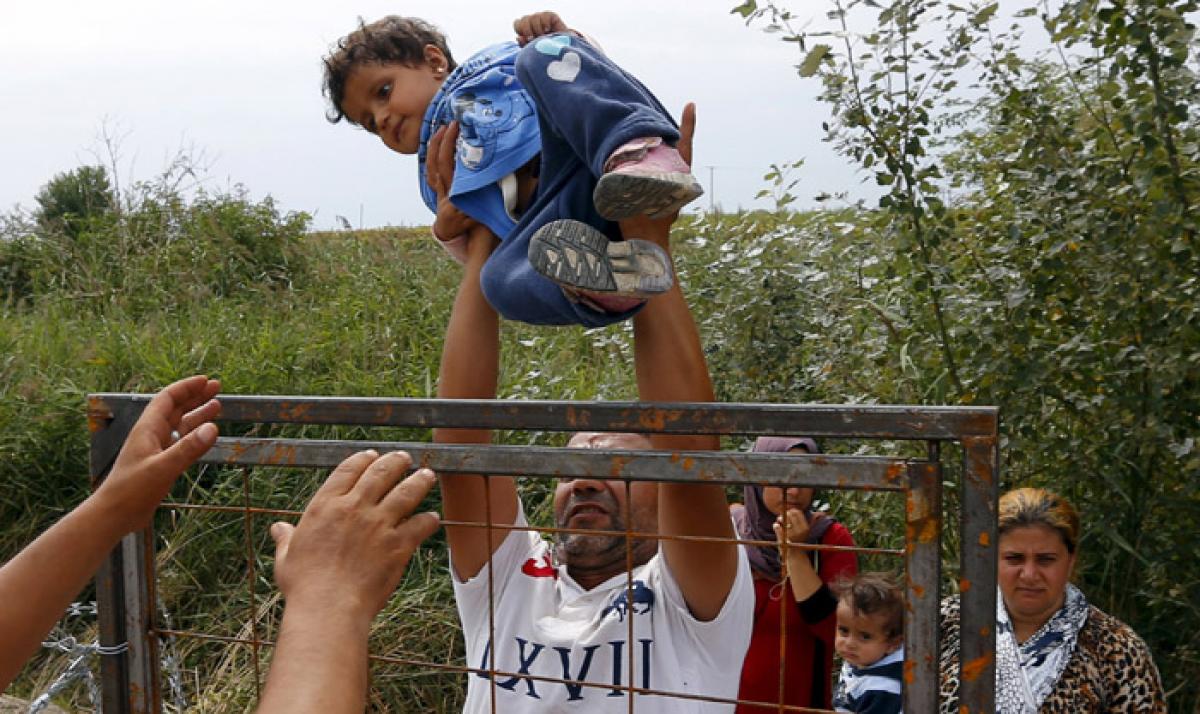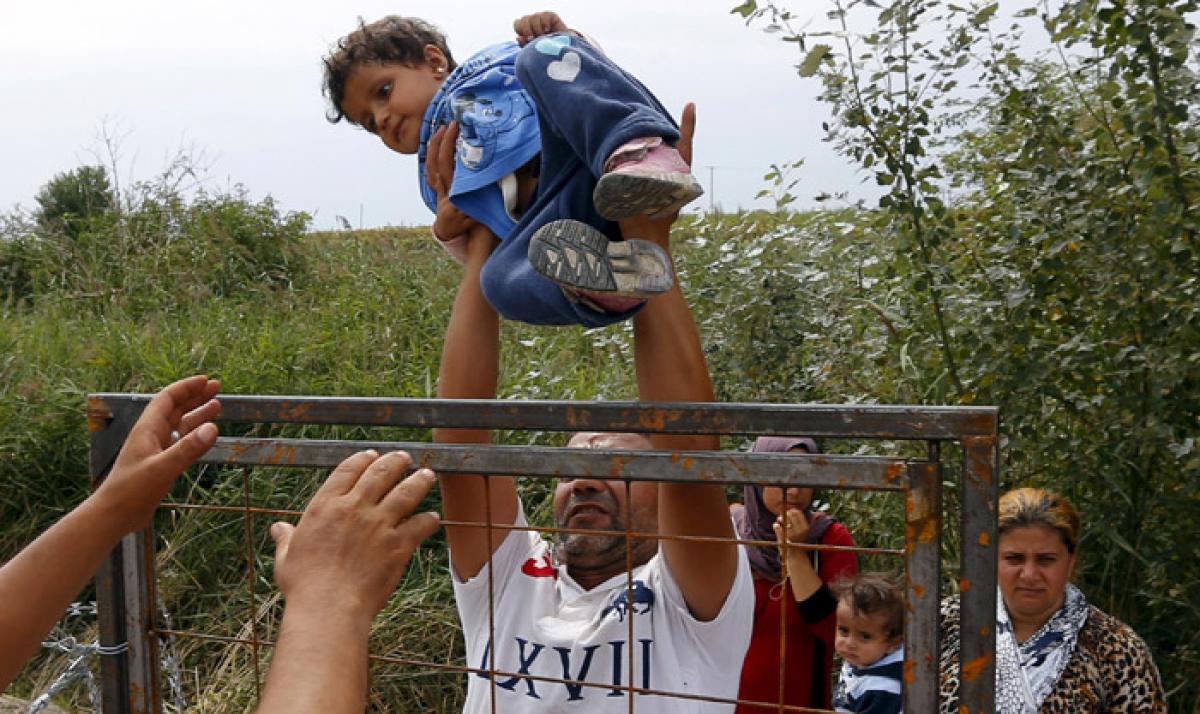Live
- Kareena Kapoor shares her top parenting hacks
- Cybercrimes posing a new threat: Union min
- Nora Fatehi to bring her A-game to the IIFA stage
- On what basis did you fix Durgam Cheruvu FTL: HC to govt
- Economics insights for aspiring entrepreneurs
- Most preferred courses to study abroad
- Medigadda barrage project taken up sans model studies
- Roadshow on global media, entertainment summit held
- Unlocking financial literacy through technology
- Study shows poor sleep may worsen fatty liver disease
Just In

Syrian civil war fuels EU migrant crisis. Almost over 2,20,000 people are feared to be dead and 7.6 million people have been internally displaced.
The refugee question in the European Union (EU) has been lingering for long now but only recently, the powerful photo of 3-year-old Aylan Kurdi washed up dead on a Turkish beach has triggered an emotional debate on whether Europe was doing enough to tackle the massive migrant crisis. Becoming the face of Europe’s migrant crisis, this picture has forced the world to focus its attention on the wave of migration fuelled by war and deprivation in Syria.

The Syrian Civil War is the worst humanitarian disaster of the contemporary era. The War that began with the anti-government demonstrations in March of 2011 as part of the Arab Spring and got complicated later with the involvement of the Free Syrian Army, the armed civilian groups and lately by the involvement of the ISIS continues till date. And like other wars, this one too has brought with itself its share of deaths and casualties.
Almost over 2,20,000 people are feared to be dead and 7.6 million people have been internally displaced. Even today thousands of Syrians are fleeing their country on an everyday basis giving rise to an exponential growth in refugees that have increased from 1,00,000 in 2012 to four million today, making it the world's largest refugee population under the UN mandate.
With such staggering figures, Europe finally seems to have woken up to the flow of Syrian refugees pouring into their continent. Under the Geneva Convention, Europe is duty-bound to protect any ‘person owing to a well-founded fear of being persecuted for reasons of race, religion, nationality, membership of a particular social group or political opinion’. Europe is struggling with its biggest migration crisis since World War II but why is it proving difficult for it to get an agreement on joint action to tackle this issue?
The possible obstacles include: First, the EU core principle of free movement – that is embodied in the passport-free Schengen area - is in dispute because the Schengen members can re-impose border controls temporarily for national security reasons, for example if they face an extraordinary surge of migrants. The difficulty in dealing with this dilemma is becoming complicated for the EU to reconcile with.
Secondly, there have been widespread disagreements on quotas whereby EU ministers have rejected binding quotas for the distribution of refugees, despite the difficulties faced by Greece, Italy and Hungary that form the main entry points for migrants crossing the Mediterranean and the Balkans. Besides, the UK has opted out of any quota system, amid a widespread hardening of attitudes towards immigration. There are tensions in the EU over the whole European asylum policy, because of the disproportionate burden faced by some countries.
Arguments over conflict zones form the third obstacle in the EU’s migrant crisis. Many Europeans are calling for much greater EU efforts to end the conflicts in Syria, Libya, the Horn of Africa and Afghanistan that are fuelling the exodus of refugees. Fourthly, there are Nationalist parties and movements in various countries in Europe- like the Pegida Movement in Germany- that have played a big role in hardening attitudes towards immigration and ‘Islamisation’. It means less hospitality towards migrants, even genuine refugees.
The relative wealth and proximity of the Gulf States to Syria has led many to question whether these States have more of a duty than Europe towards Syrians suffering from over four years of conflict. In fact, an Amnesty International report recently pointed out, the six Gulf countries - Qatar, UAE, Saudi Arabia, Kuwait, Oman and Bahrain - have offered zero resettlement places.
Curiously though, none are signatories to the United Nations' 1951 Refugee Convention. This position appears to be motivated by the presence of many migrant workers in these countries and giving political asylum would mean that it could potentially open the doors for a multitude of their temporary workers to stay permanently and eventually raise complex demographic issues.
The other reasons why these countries don’t take refugees may be political and religious. Iran supports Syrian President Bashar al-Assad, while Saudi-led Gulf states have funded rebel movements in these countries. It is ironic that the death of a toddler led to a change of heart and softening of policies in many countries of Europe including the UK. EU has to exercise its diplomatic options soon or else the situation could become worse. Thus it’s time to join hands together to solve this issue before it assumes a big international security threat.
By Amrita Banerjee

© 2024 Hyderabad Media House Limited/The Hans India. All rights reserved. Powered by hocalwire.com







